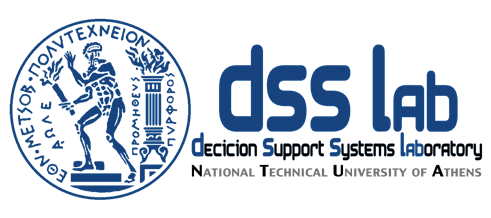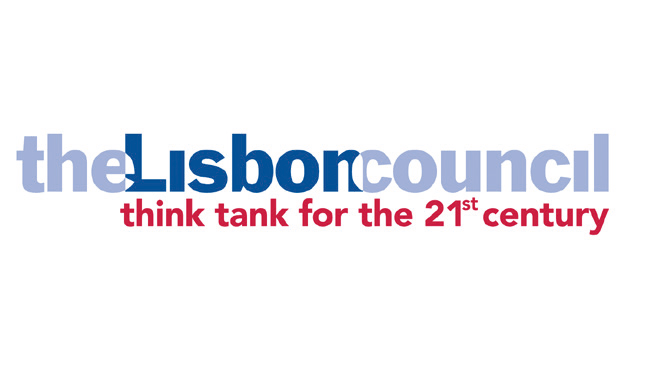Strategical need
Cross-linked information exchange
<p><span><span>Public sector organisations are mainly knowledge-intensive organisations, and to exploit their knowledge, effective knowledge sharing among the different departments is required. There can be great advantages if information is not only used in the own administration but is shared between hierarchies, different policy areas and levels of government. Including findings from other disciplines in respective monitoring systems (e.g. education, social, youth, and work) can create synergy and learning effects, which in turn leads to a share of benefits.</span></span></p>
<p><span>...</span></p>
Environmental Awareness and Protection
<p><span lang="EN-GB" xml:lang="EN-GB" xml:lang="EN-GB"><span><span>Public administration has many opportunities to protect the environment and reduce its negative impact on it. There is a lot of potential in minimising energy, paper and water consumption, as well as waste production in public institutions. Because of the administration's role model function, it is necessary to take responsibility, and in consequence, to develop and establish environmental awareness. Environmental protection is a priority topic in recent years, which also needs to be addressed by the public administration....</span></span></span></p>
Take into account local and regional specificities
<p><span lang="EN-GB" xml:lang="EN-GB" xml:lang="EN-GB"><span><span>It is most important to take into account the state-specific circumstances, as well as local and regional specificities. For example, the German public administration differs fundamentally from public administration in other countries. Solutions that were identified as right and expedient for one country are not automatically useful in another. The possibilities of implementation will vary due to diverse traditions and organisational cultures. That is why "one size fits all"-policies should be avoided.[1] </span></span>...</span></p>
Improve and strengthen Europeanisation
<p><span lang="EN-GB" xml:lang="EN-GB" xml:lang="EN-GB"><span><span>Public management has to react to changes in national and global contexts. A current key driver for changes can be seen in the Europeanisation, which affects the level of member states, caused by EU integration processes. Successful administrative action in the multilevel European system requires adjustments, ensuring efficient dealing with European objectives. As a result, - despite different traditions in the member states - there is an increasing convergence in the policy making and institutional decision making structures...</span></span></span></p>
Continuous Evaluation of Policies
<p><span><span>Evaluation represents a separate stage in the policy cycle, but has to be pointed out as an own need in public administration. Evaluation decides whether a policy will be finished, modified and/or continued. At the same time, it can inform about results and consequences (intended and not intended). Only if policies are evaluated, potential improvement will be identified and at best implemented. In this context, it should be emphasised that a policy is never completed and is always evolving. This makes a qualitative and regular evaluation essential. The relevance of this need...</span></span></p>
Strengthen citizens’ trust in public administration
<p><span lang="EN-GB" xml:lang="EN-GB" xml:lang="EN-GB"><span><span>To improve public administration´s image, it is important to rebuild the trust in it. The citizens’ cooperation seems essential to achieve public purposes. The lack of trust can make the formulation and implementation of policies more difficult or even impossible. Relevant factors that influence citizens’ trust is the administrations´ integrity, as well as its performance. Transparency and public participation can be helpful possibilities to increase the trust in government and administration.[1][2][3] </span></span></span>...</p>
Forward-looking strategic planning for the use of data and technologies as well as for practical implementation
<p><span><span>The focus group, that has been conducted with domain experts in the fields social security and institutional question on local and regional level has proven one more time, that strategic planning is fundamental important. For its success, the focus group advised to fund long-term digitisations strategies adequately, as this is essential for the implementation of new tasks. </span></span></p>
Involvement of the public and citizens, as well as the development of citizen-centred policy making
<p><span lang="EN-GB" xml:lang="EN-GB" xml:lang="EN-GB"><span><span>Concerning the public, a close cooperation between public administration and citizens seems essential. Through participative democracy and public involvement, a new relationship between the citizens and the administrations can be established. The publicity becomes a valued partner to identify problems, discover new thinking and propose solutions. This can be seen as a profit for public administrations, because the experiences of the citizens can be contributed into the administration and help to improve, for example, its...</span></span></span></p>
Development of domain specific target and indicator systems
<p><span lang="EN-GB" xml:lang="EN-GB" xml:lang="EN-GB"><span><span>Already the political economist and sociologist Max Weber once has pointed out that decision makers need to ensure the rationality of their decisions, by trying to balance out the best relation of means and ends.[1]</span></span></span></p>
<p><span lang="EN-GB" xml:lang="EN-GB" xml:lang="EN-GB"><span><span>Consequently, policy makers need to clarify the targets that they want to reach through certain political programmes and norms. In fact, the executive bodies need quite precise targets, since they are responsible for the...</span></span></span></p>




